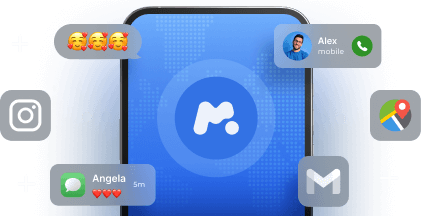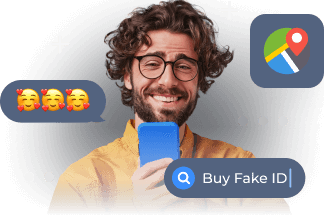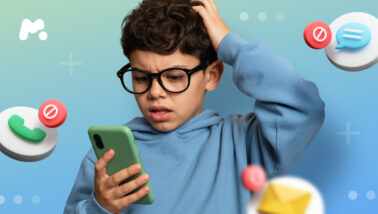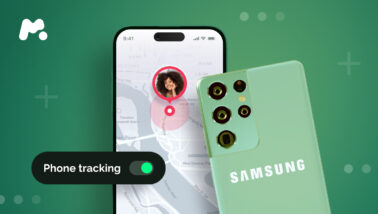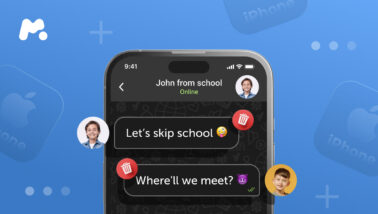
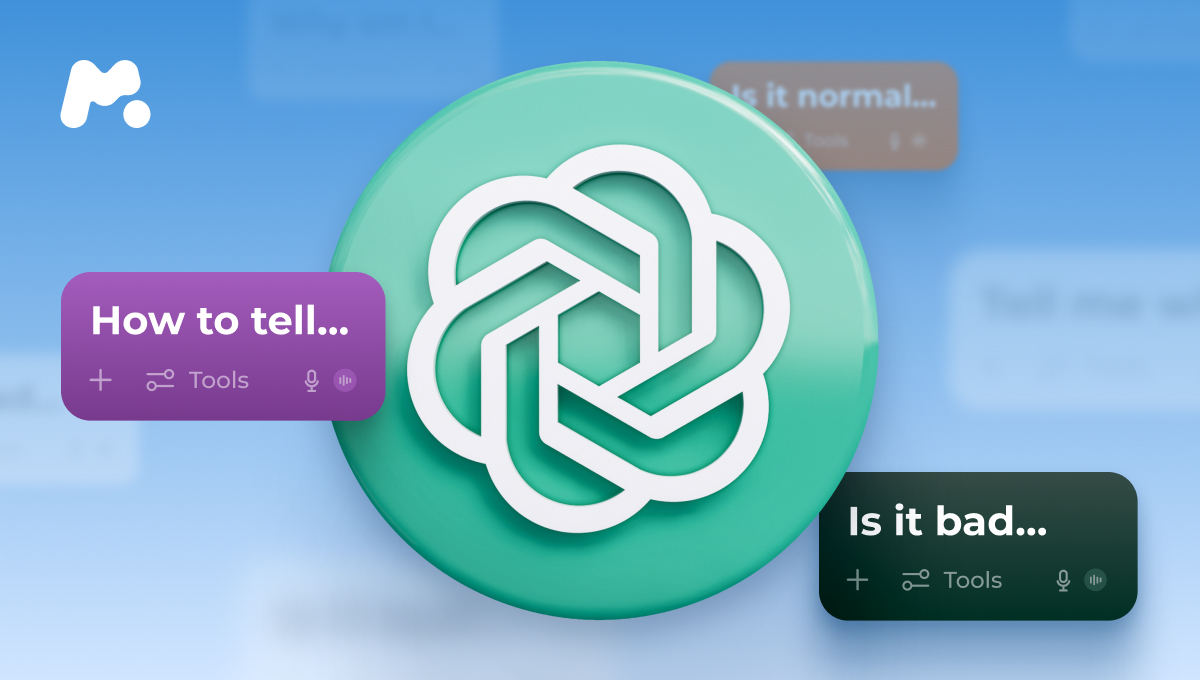
In November 2022, the world hit the reset button, and things haven’t been the same since. You know exactly what we mean! That’s when we first learned about ChatGPT.
Can you imagine your life without this assistant now? It seems like there is nothing that it cannot solve. Whether you’re tackling complex coding challenges or figuring out how to turn a few fridge ingredients into a cake, this tool has become a real assistant.
At the same time, ChatGPT has a charmingly human flaw: it’s not perfect. Over the years, users have collected a big pack of memes about the quality of its work. For example, when someone asked how many letters are in the word “dog,” it confidently replied, “five.”
That said, AI is already a part of our lives. Therefore, it’s important to understand the details of how it works. For example, does ChatGPT track you?
This question, along with others you might have, becomes much less stressful with a little research and the right information. We did this research for you. Let’s look at the insights!
Table Of Contents
Is ChatGPT Private or Public?
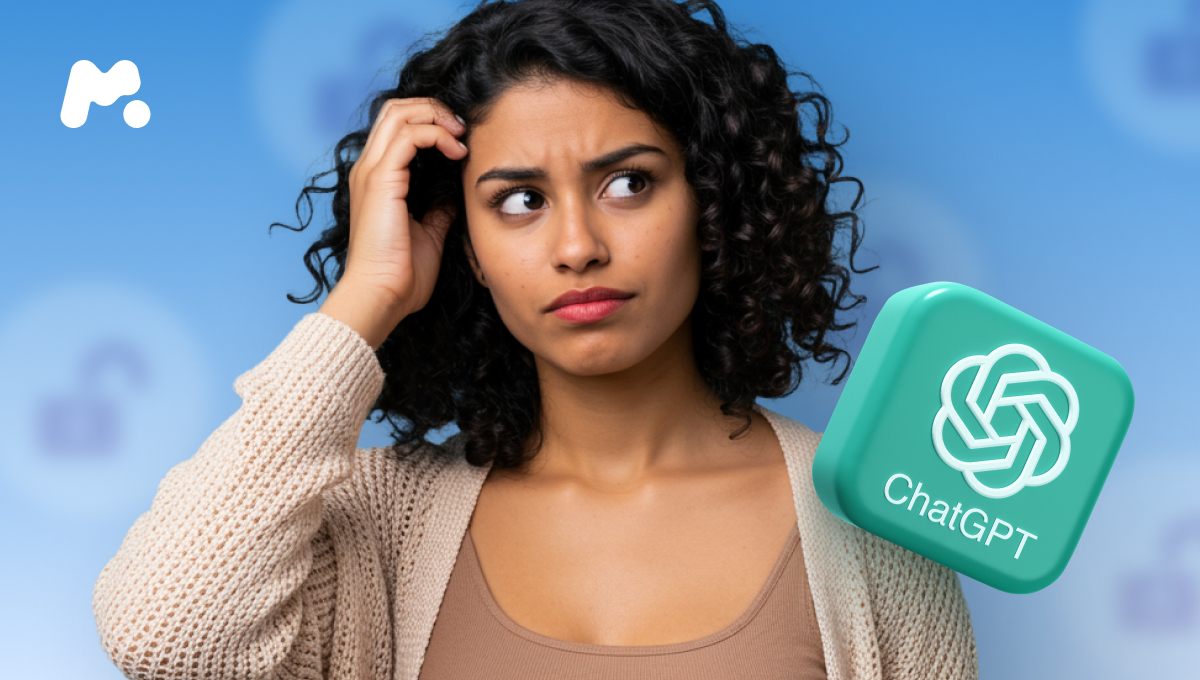 Don’t worry — no one at OpenAI is laughing at your questions or sharing your private info with anyone. So, yes, the use of AI is private. Everything that is said in your chat stays in your chat. ChatGPT closely monitors confidentiality and follows a strict set of rules.
Don’t worry — no one at OpenAI is laughing at your questions or sharing your private info with anyone. So, yes, the use of AI is private. Everything that is said in your chat stays in your chat. ChatGPT closely monitors confidentiality and follows a strict set of rules.
So you can ask those quirky questions or share funny moments without a second thought. But there is something you should definitely know about ChatGPT! Keep reading.
Does ChatGPT Save Your Data?
ChatGPT doesn’t store your data in the traditional sense, but it does use it to learn and improve itself. How does this work? We provide it with data, it analyzes this information, and improves by learning new skills and gaining knowledge from it. In this way, we all become teachers, helping shape and refine AI together.
So, yes, chatbots do store some of our data. But here’s the good news: all the information is completely anonymous and isn’t tied to you personally.
Also, ChatGPT has a temporary memory during your conversation, so it can remember what you’ve asked before. This means that during active use, your questions and answers are stored in the chat for a while, allowing the AI to maintain context and make the conversation more natural and consistent.
That’s how it provides such personalized, context-aware responses, making it feel like the AI “gets you” like a friend.
Does ChatGPT Share Your Conversations With Third Parties?
Why not just ask directly and see what it says? Let’s see what it says.
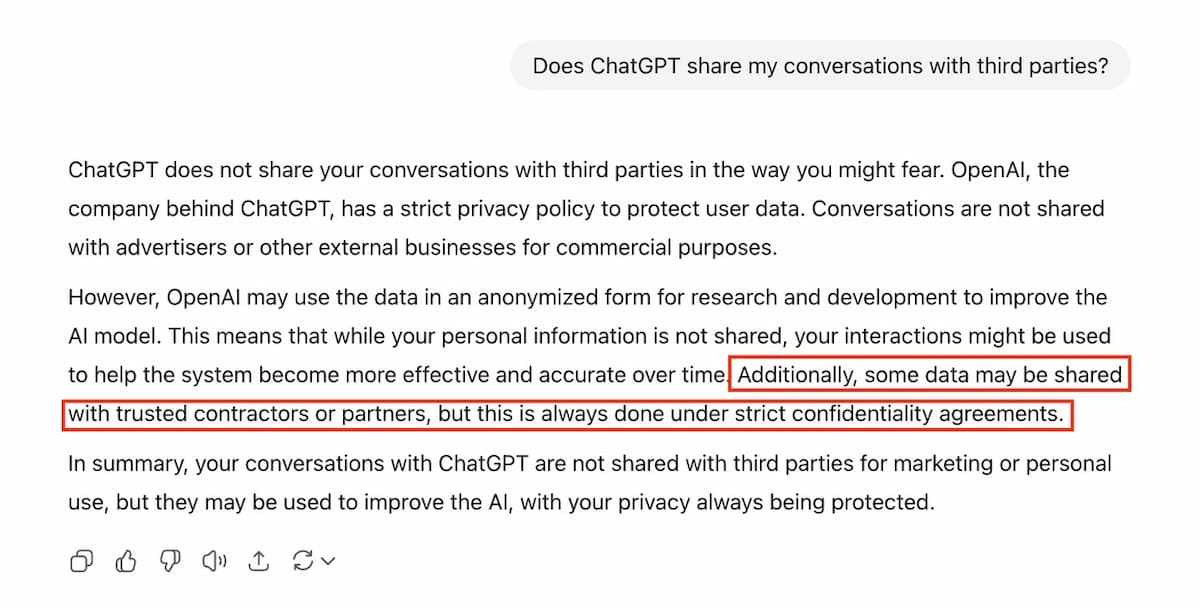
Based on the answer, some data may be shared with contractors and partners. This certainly raises concerns. That’s why, even with a trusted tool like OpenAI, it’s always a good idea to follow basic internet safety rules.
For example, avoid disclosing sensitive information such as home addresses, phone numbers, bank account details, or any personal data that could be used for identity theft or fraud.
By the way, you can also send your conversations with ChatGPT to others. Simply find the chat you want, click the “Share” button, and you’ll receive a link to forward it. Rest assured, only the selected chat becomes public — your other conversations will remain private.
Can ChatGPT Be Tracked?
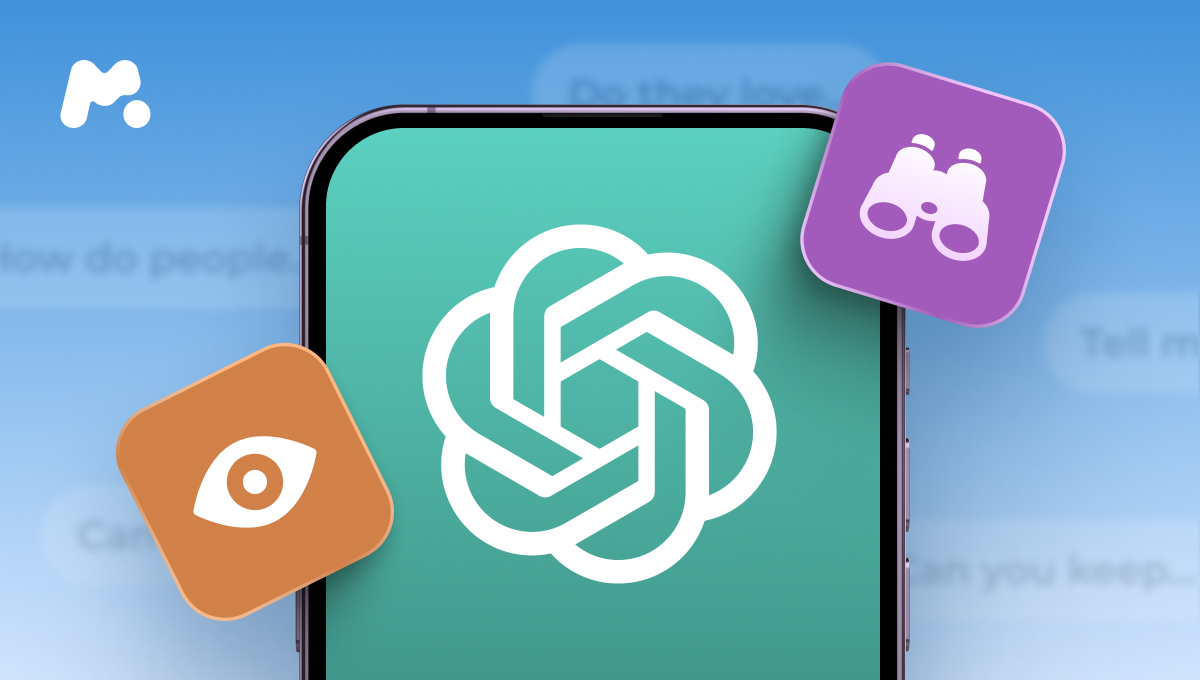 AI comes with solid data protection, but there are still ways to track ChatGPT. This is especially important for parents whose kids are already diving into new tech. So, why does monitoring AI matter? Let’s break it down:
AI comes with solid data protection, but there are still ways to track ChatGPT. This is especially important for parents whose kids are already diving into new tech. So, why does monitoring AI matter? Let’s break it down:
Content Control
ChatGPT can generate all kinds of content. Generally, it’s safe, but there’s always a chance that something inappropriate might slip through.
Protection from Dangerous Queries
Kids might ask sensitive or even dangerous questions (like about self-harm or other serious topics), and it’s important for parents to be able to spot such queries in time and respond appropriately.
Emotional Support
Parents can also monitor if their child uses ChatGPT for advice or support. If your child frequently asks big, emotional questions or starts treating ChatGPT like a friend, it could be a sign they need more attention and support.
Tracking Learning Progress
Kids often turn to ChatGPT for help with homework or even to cheat on tests. It’s natural to want quick answers, but there’s a big difference between getting a bit of help and relying on it too much.
If they start depending on these tools too much, it can hurt their ability to think critically. And let’s face it, AI isn’t always accurate, so parents and teachers need to play fact-checkers to ensure kids aren’t getting wrong information.
Real Solution for Parents
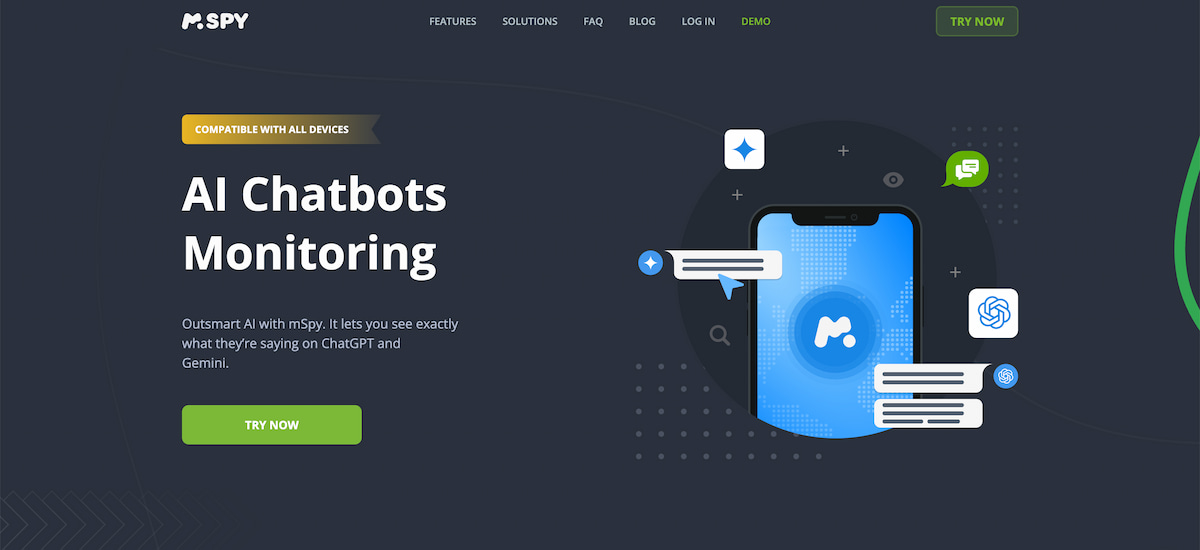 One legal way to monitor someone’s AI use is through parental control apps. After researching the market, we found that AI monitoring features are not widely available in most apps.
One legal way to monitor someone’s AI use is through parental control apps. After researching the market, we found that AI monitoring features are not widely available in most apps.
Here’s the great news! mSpy has recently launched the AI Chatbot monitoring feature. Now, you can easily view all chats and access the entire history of ChatGPT requests. No matter if they asked AI an hour ago or a month ago, mSpy lets you see it all. Just head over to the Dashboard and check what you need. Now you’re in charge of your child’s online interactions, so you can stop worrying.
Moreover, you can check their AI history anytime, whether you’re on your Mac, PC, or phone — no need to install anything on your end. And, of course, it’s completely invisible and anonymous, so your child won’t even know that ChatGPT is monitored.
So, go to mSpy, sign up, and start tracking today! Let’s make the internet a safer place for our kids.

